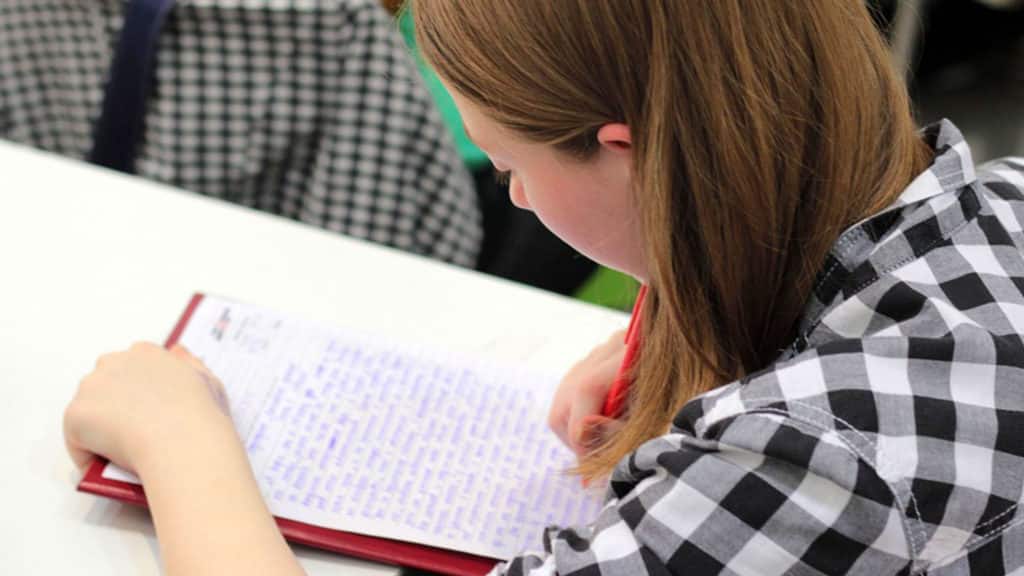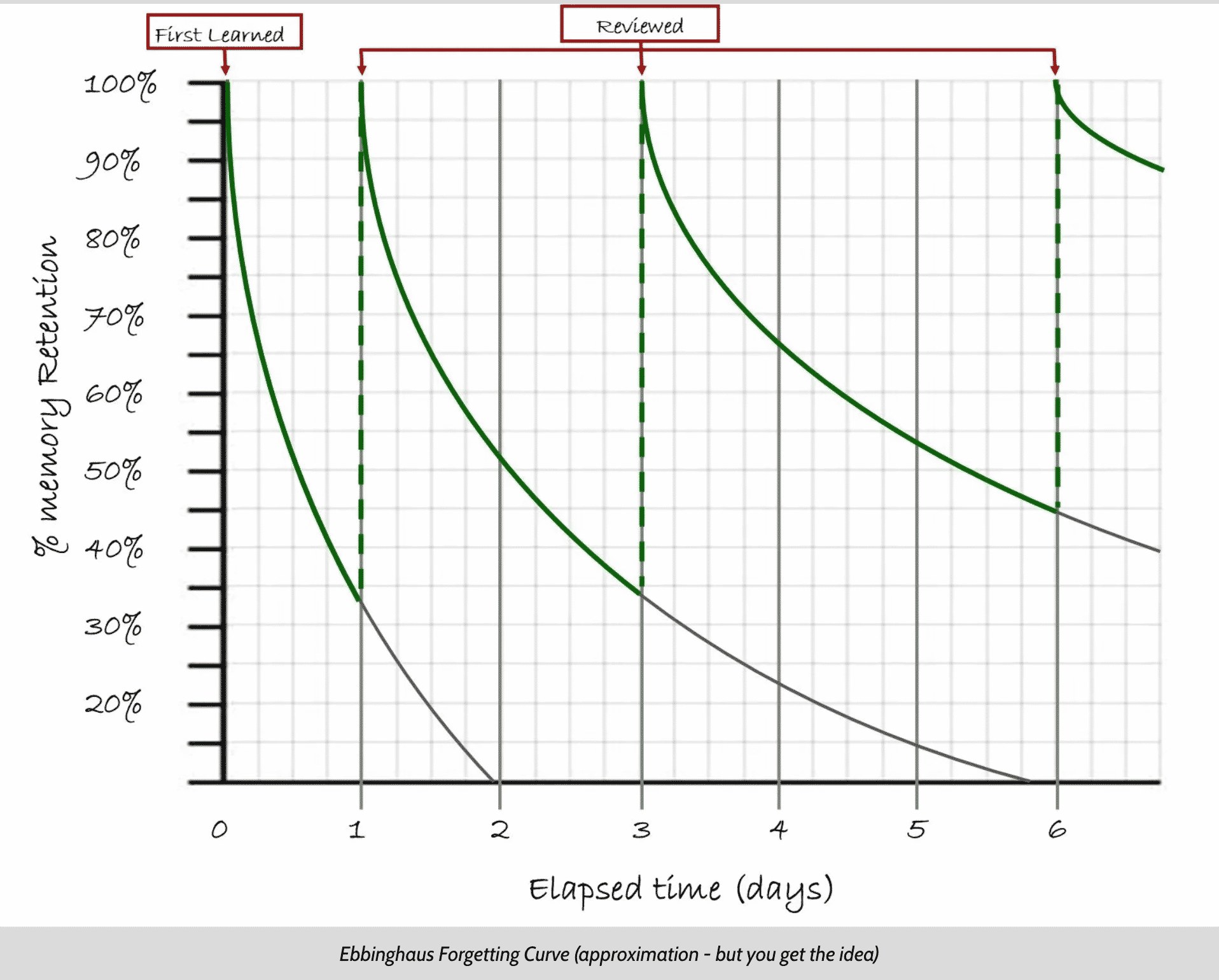No. 20 Revision Tip #2 – The Forgetting Curve & Spaced Learning

It sounds counterintuitive but in order for us to remember we first need to forget.
Imagine your lovely class of diligent year 11s who have paid attention in your lesson and made loads of progress and you feel confident that they now understand the concept they need to for their exams. They walk into the next lesson and completely forget everything they covered (well nearly everything) in the previous hour. This is what we would expect – in order to remember we need to make new neuronal connections and we need repeat visits to this information to strengthen these connections and ultimately remember it.
The image below is what is called the forgetting curve and was first established by Ebbinghaus. Essentially on first visit if we never revisit the information all of it will be forgotten relatively quickly, but if we revisit the information a few days after our first learning (e.g. as a homework activity) then we will take longer to forget, if we then revisit the information again as revision for an end of unit test it will take even longer to forget. If we revisit information enough times with increased time in between eventually we will have strengthened the neuronal connections sufficiently to make the information stick.

The importance of Spaced Learning
The research strongly points to the fact that intervals between learning are essential for effective retention. So continuous or massed practice is not as effective as revisiting information for a short period of practice time with a decent interval in between. In addition we should increase the time between successive study sessions (so within a week for the first revisit, then 3 weeks, then 6 weeks say).
Imagine it a bit like building muscle strength. If you want to become stronger you need to do a training session (where you essentially damage a muscle), allow it to repair and become stronger before you do your next training session, over time you will get stronger. If you did one hour training every day for a week or spent a whole day training 5 weeks later you won’t be any stronger – you need to train with intervals of no training in between. The same is true of memory, you build it up a little at a time over time.
So what does this mean for students learning for exams. Firstly that they need to revisit information a number of times before the exam and that these revisits need to be spaced. This is relatively easy for the information early on in the course – each lesson/unit might be revisited through homework, end of unit tests, summer exams and mock examinations, but it is less obvious how that might work for information learned much closer to the exams.
It is really helpful to encourage students to get into good habits at the start of the course (well preferable really early on in their educational career). This may mean we need to get creative in the way that we get them to revisit information that they have learned throughout the year. As teachers we may also need to plan carefully to ensure that there are opportunities for students to revisit everything they are taught in lessons at other times – obviously tests and mocks are a good start, but actually no guarantee that students will study all the material they need to. Here are some other ideas to get you started – do feel free to share yours:
- Find and share documentaries to watch for homework;
- Find and share podcasts for them to listen to;
- Find and share magazine articles for them to read about;
- Low stakes testing at the end of a unit on more than the unit they have just studied;
- Go through test papers;
- Homework to create notes of 3 topics they are less secure on;
- Random check at the beginning of the lesson – ask a pupil to teach the class something they know about from the course you have taught;
- Spend 5 minutes at beginning of each lesson recapping a previous topic;
- Use homework to encourage them to revisit old information (e.g. one week homework is on current learning, the next week it is past paper on previous units);
- Flipped learning;
- Get them do a mind map on previous topics for a cover lesson if you are absent;
- Create and use flashcards to do self-testing or class tests.







Responses